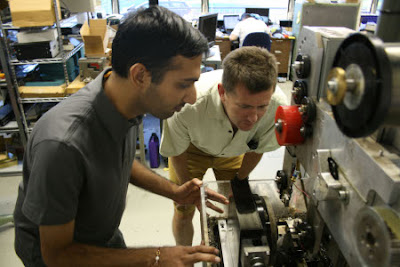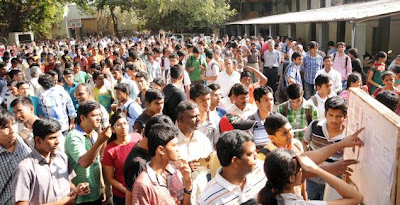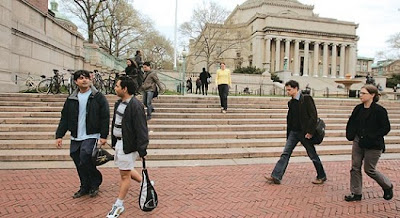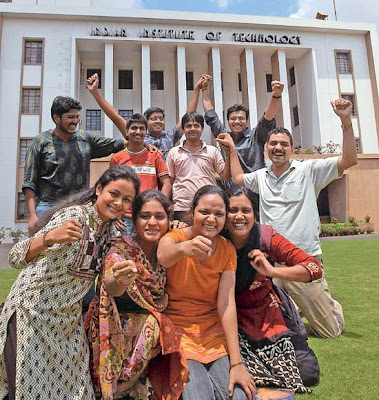IIT-JEE aspirants often wonder things about their dream engineering institutions – the IITs. They discuss about them with their friends and family. However, in this process, like the classical game of Chinese Whispers, a lot of incorrect information is floated around that gets turned and twisted at every stage and in the end gets misguiding at once. Most aspirants believe these myths to be true, which could affect preparations and prove to be very harmful for aspirants sometimes.
Even our team at Engineering Entrance Guide used to believe some of these myths earlier. Given below are some common myths relating to IITs:
Myth 1: “IIT Mumbai is the best according to a magazine’s rankings”
Around the time of April-May every year, all magazines claim to have organized surveys and studies in all institutes across India, and allot points on various parameters like campus, academics, faculty, placements, extra-academics, etc. Do you really think these magazines go to all these institutes and do these surveys and studies as they claim? Even if they do, how correct is their evaluation? The reality is, in fact, no such survey is ever conducted by any of those magazines. Such rankings and points are given by a group of their reporters, most of whom don’t know much about IITs.
The rankings and points given are arrived on the basis of the feedback they receive from mostly random people and students around them. The views are highly prone to be biased towards or against a particular college. Also, most often these rankings are highly influenced by the promoters of private institutes (VIT was once ranked ahead of IIT Guwahati by some magazine). These rankings are also never consistent. Different magazines have completely different rankings. So it makes no sense to base your judgment about an institution on these rankings. They are indicative up to some extent, like they would never place IIT Bhubaneswar above IIT Kharagpur. Such rankings just should be trusted with utmost care, not blindly.
Myth 2: “IITians have to work hard day and night because of the extreme academic pressure”
Thanks to the movie 3 Idiots for this. People generally think of IITs as institutions where students are under extreme pressure all the time and are always looking for new ways to commit suicide in their hostels. Students have to take many assignments and surprise tests from their grumpy old professors that leave them with no time for anything apart from academics, killing their innovative thinking. The truth is, yes, there is a certain amount of academic pressure in IITs, which is more than other engineering institutes. But the pressure is never more than what the IITians can handle. After all, IITians are the top 2% of all the JEE aspirants who apply for it. They are supposed to be better than the others. Whatever pressure is there is easily managed by the students. And students there get more time (and facilities) for extra academics than other institutes. Ask any IITian, and you would know they complete most of our syllabus in the 1-2 weeks before exams. Rest of the time is used to enhance extra skills, academic or non-academic. And there is enough time and encouragement to do something, anything, innovative. Students in private engineering colleges often do not get so much time and freedom to do so.
Myth 3: “A particular IIT is good at Physics, etc”
This is a common myth among students. We don’t know where these kinds of rumors get started from. It’s true that a particular IIT may have superior research facilities for a particular subject, but B. Tech. students have nothing to do with it. Having better infrastructure and research facilities does not mean the professors will teach you any better. Also, B. Tech. students are most probably not going to use any of those research facilities during their B. Tech. course. So it does not mean much for undergraduate students. It only makes a difference for the research scholars (Ph. D. students) or M. Tech. students.
Myth 4: “IITs have more than 100% placements”
It makes us laugh. I heard it for the first time around the time when of my friend cracked the JEE. Some people think IITs have “600% placements. It means the total number of job offers available is 6 times more than the number of students passing out.” This is entirely incorrect. Even a top branch in the old IITs cannot assure you a job. The percentage of students placed very often does not even reach the 100% mark. It hardly ever happens that a company which came to the IITs for campus placement had to go back empty handed because there weren’t enough students. However, sometimes companies do go without recruiting anyone because they didn’t find any IITian competent enough to work for them. Surprising? Remember Narayan Murthy’s comment about the IITs? He said most of the students passing out of IITs fare poorly at jobs that is why Infosys does not recruit from the IITs anymore. We are not here to debate on his, but it should give you an idea of what the corporate world thinks of IITs.
For JEE aspirants, IITs are their dream institutions. But for the corporate world, it’s just another engineering college that produces slightly more talented workers than the others. Companies want talented people who can work for them. They don’t care how hard you worked for cracking the JEE or what was your JEE rank. They come to IITs to recruit just because they have a better chance of finding talented people here. If you are not competent, you will not get a job, whatever IIT and branch you may be in. Most recruiting companies have a very rigorous selection process, to ensure that they get only the most suitable. So, as you see, the bargaining chip is with the corporate, not with the IITs.
Myth 5: “I find solving linear equations interesting. I am a genius at Maths”
Students in 11th and 12th class usually get over-excited by their good marks in a particular subject. If you are doing well in a subject, it may mean that you have a good aptitude for it, but it does not always mean that it will remain that way once you take admission in a college. The syllabus for Physics, Chemistry and Mathematics get very different once you go for higher studies in that topic. For example, while Physics in senior high school is primarily about concepts of Classical Physics, in college it mainly revolves around Modern Physics. While Classical Physics is more numerical based, Modern Physics involves more of theories. So students who used to love Physics in their intermediate school often dislike the subject when they go for higher studies in the subject. However, don’t lose confidence. You may really have a good aptitude for a subject. Just don’t jump to conclusions. Get an idea of what your studies will be like once you go for higher studies in a subject, and then take any decisions.
Myth 6: “JEE achievers are extremely talented and should be worshiped”
Coaching centers nowadays will do anything to add one number to their “number of students qualified”. This has resulted in over-valuation of one’s JEE rank. JEE ranks’ only role is to provide a preference order for qualifying students during the IIT JEE counseling. A better ranking student’s preference is taken in to account first while allotting branches and IITs. After the seats are allotted, ones JEE rank hardly matters much. Of course it’s nice to know that you got such a good rank in the JEE, but now there are better ways to evaluate you. A JEE rank of 1 or 1000 hardly makes any difference 4 years after passing out of IIT. Companies are more interested in knowing what you are capable of doing, not in what you did 4 years ago after taking years of focused coaching for the exam. Very often it is seen that students with top JEE ranks turn out to be less successful than others.
Hope this clears up some of your myths and makes a little you more aware. By the way, the game of Chinese Whispers has been used in UK schools to simulate the spread of gossip and supposed harmful effects. It is also used to teach young students how to listen attentively. So it is always better to take the lesson early without having to play the game in real life.






























